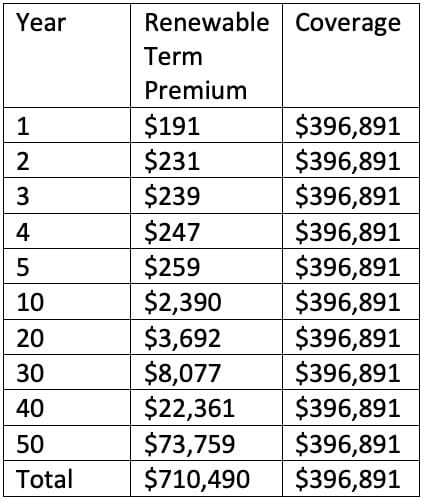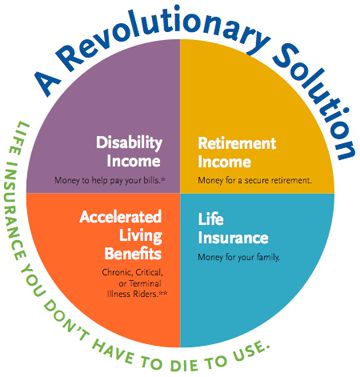All Categories
Featured
Table of Contents
Indexed Universal Life (IUL) insurance coverage is a sort of long-term life insurance coverage policy that combines the functions of traditional universal life insurance policy with the capacity for money worth growth connected to the performance of a supply market index, such as the S&P 500 (IUL death benefit). Like various other kinds of irreversible life insurance policy, IUL offers a survivor benefit that pays to the beneficiaries when the insured dies
Money value build-up: A portion of the premium repayments goes right into a cash worth account, which gains interest with time. This cash money value can be accessed or obtained against during the insurance holder's lifetime. Indexing choice: IUL policies use the chance for money value development based on the efficiency of a securities market index.
Who offers Iul Growth Strategy?
As with all life insurance policy products, there is likewise a set of dangers that insurance policy holders need to be mindful of prior to considering this kind of plan: Market threat: One of the primary threats connected with IUL is market threat. Because the money value development is connected to the performance of a securities market index, if the index chokes up, the cash value may not expand as anticipated.

Enough liquidity: Insurance holders need to have a secure economic circumstance and fit with the premium repayment needs of the IUL plan. IUL enables for adaptable premium settlements within specific limitations, but it's vital to maintain the policy to ensure it accomplishes its designated goals. Passion in life insurance policy protection: Individuals who need life insurance policy coverage and a rate of interest in cash value growth might find IUL attractive.
Prospects for IUL need to be able to comprehend the technicians of the plan. IUL may not be the most effective option for people with a high resistance for market threat, those who prioritize low-priced financial investments, or those with even more prompt economic requirements. Consulting with a qualified monetary advisor who can offer tailored guidance is vital prior to thinking about an IUL plan.
All registrants will certainly get a schedule invitation and web link to sign up with the webinar via Zoom. Can not make it live? Register anyhow and we'll send you a recording of the discussion the next day.
Why is Guaranteed Iul important?
You can underpay or skip costs, plus you might be able to readjust your death advantage.
Money worth, along with potential development of that value with an equity index account. An alternative to allocate component of the money value to a fixed interest option.
Insurance policy holders can decide the portion allocated to the taken care of and indexed accounts. The worth of the chosen index is videotaped at the beginning of the month and compared to the value at the end of the month. If the index raises during the month, passion is contributed to the cash money worth.
The resulting rate of interest is included to the cash money value. Some plans compute the index gains as the sum of the adjustments for the duration, while other policies take an average of the day-to-day gains for a month.
What happens if I don’t have Iul Insurance?
The rate is established by the insurer and can be anywhere from 25% to even more than 100%. (The insurer can also alter the take part price over the life time of the plan.) If the gain is 6%, the participation rate is 50%, and the present cash money value total amount is $10,000, $300 is added to the cash money value (6% x 50% x $10,000 = $300).
There are a number of pros and cons to take into consideration before buying an IUL policy.: Similar to common universal life insurance coverage, the insurance holder can enhance their premiums or lower them in times of hardship.: Quantities credited to the money worth grow tax-deferred. The cash money worth can pay the insurance costs, allowing the insurance policy holder to reduce or stop making out-of-pocket premium settlements.
How long does Iul Protection Plan coverage last?
Several IUL policies have a later maturation day than various other sorts of universal life plans, with some ending when the insured reaches age 121 or more. If the insured is still to life at that time, policies pay the fatality benefit (yet not usually the cash worth) and the earnings might be taxable.

: Smaller sized plan face worths do not supply much advantage over normal UL insurance policy policies.: If the index drops, no rate of interest is credited to the money value. (Some plans offer a low guaranteed rate over a longer duration.) Other financial investment cars use market indexes as a benchmark for performance.
With IUL, the goal is to profit from upward motions in the index.: Because the insurance provider just acquires choices in an index, you're not directly purchased stocks, so you don't benefit when companies pay rewards to shareholders.: Insurers charge costs for managing your cash, which can drain pipes cash value.
Why should I have Tax-advantaged Iul?

For most individuals, no, IUL isn't better than a 401(k) - High cash value Indexed Universal Life in regards to saving for retired life. The majority of IULs are best for high-net-worth individuals trying to find means to reduce their gross income or those that have actually maxed out their other retired life options. For every person else, a 401(k) is a much better financial investment lorry due to the fact that it doesn't lug the high costs and costs of an IUL, plus there is no cap on the amount you might make (unlike with an IUL plan)
While you may not shed any type of cash in the account if the index decreases, you will not make interest. If the marketplace transforms favorable, the earnings on your IUL will certainly not be as high as a typical financial investment account. The high expense of premiums and fees makes IULs costly and considerably less affordable than term life.
Indexed universal life (IUL) insurance policy provides money value plus a death benefit. The cash in the cash value account can gain passion with tracking an equity index, and with some frequently alloted to a fixed-rate account. Indexed universal life policies cap how much money you can collect (commonly at much less than 100%) and they are based on a perhaps volatile equity index.
How do I compare Indexed Universal Life Accumulation plans?
A 401(k) is a better option for that objective because it does not carry the high charges and costs of an IUL policy, plus there is no cap on the quantity you may make when invested. Most IUL plans are best for high-net-worth people seeking to decrease their taxable earnings. Investopedia does not supply tax obligation, financial investment, or financial solutions and recommendations.
If you're taking into consideration getting an indexed universal life policy, first talk with an economic expert who can describe the nuances and give you an exact photo of the actual potential of an IUL policy. Make certain you comprehend just how the insurance company will certainly compute your rates of interest, earnings cap, and costs that could be analyzed.
Latest Posts
What Is Indexed Whole Life Insurance
Index Life Insurance Pros And Cons
Index Universal Life Insurance Reddit